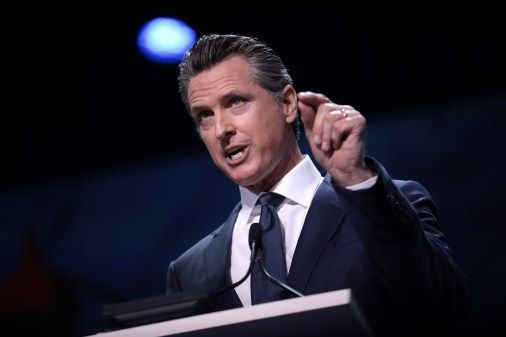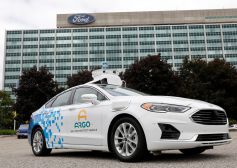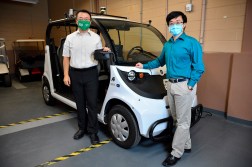Chicago might ban autonomous vehicles

As some cities begin piloting the use of autonomous vehicles on public streets, lawmakers in Chicago are proposing to push back with an outright ban on city roadways.
In September, City Council members Ed Burke and Anthony Beale introduced a piece of legislation to prohibit fully autonomous vehicles from using Chicago’s roadways. Their ordinance, which allows semi-autonomous vehicles, cited safety concerns and an absence of proven regulatory standards as primary objections. The ordinance went on to reference the death of Joshua Brown, who was killed on May 8 after his Tesla Model S crashed into a tractor trailer while driving on “autopilot” mode.
“There are currently no rules or regulations in place in the State of Illinois or the city of Chicago to promote the safe operation of autonomous vehicles on public roadways,” the council members stated. “Any operator who violates this section shall be fined $500 for each offense.”
The stance is a stark contrast to the many city officials, state regulators, automakers, tech companies and transportation agencies that have endorsed research and development of self-driving vehicles. Los Angeles Mayor Eric Garcetti helped establish autonomous transportation into the city’s future transportation strategy. Michigan Gov. Rick Snyder signed a piece of legislation Friday allowing autonomous vehicles to ride the roads unaccompanied by a human. And in September, federal Secretary of Transportation Anthony Foxx released the first safety guidelines to pave the way for adoption of autonomous vehicle policies in cities and states.
Google is releasing monthly test and crash reports that reveal data far more critical of human drivers than machines — collisions not involving human error are almost unheard of.
Emails and calls to the Chicago lawmakers were not returned, but the two elaborated on their reasoning for the ban in a press release.
“We do not want the streets of Chicago to be used as an experiment that will no doubt come with its share of risks, especially for pedestrians,” Burke said.
He was joined in the release by Beale, who described the measure as a temporary one.
“With the deployment of driverless cars now imminent across the nation, we should be cautious not to allow them in Chicago until we know beyond any doubt that they are safe,” Beale said.
Even if the law is only temporarily upheld, it could delay Chicago from conducting research and developing its own regulations. It could also have the opposite of the intended effect, as autonomous vehicle advocates frequently highlight the potential lives that could be spared with fewer humans behind the wheel. The Self-Driving Coalition for Safer Streets — a group that represents companies like Google, Ford, Volvo, Uber, Lyft, Ford and Volvo — said as much.
“Self-driving technology has the tremendous potential to save lives and enable mobility for everyone, including the residents of Chicago. It’s disappointing to see some members of Chicago’s City Council are considering a preemptive ban on new technology and investment that can transform mobility for the elderly and disabled, cut traffic and congestion on our streets, and improve public safety,” said the group’s spokesman David Strickland in September, adding the group was “committed to finding appropriate policy solutions that support safe testing and development.”
Some media outlets hinted that safety might not actually be the motivation behind Beale and Burke’s opposition. CNET Road Show‘s Andrew Krok speculated that Chicago’s Taxi Industry lobby could be at work and suggested the move was “nothing but a Chicago Machine shakedown.” An article by the Chicagoist also observed it was not the first time Beale and Burke battled against transit disruptors. Last spring, the two rallied for additional taxes and regulations on Uber and Lyft. The campaign failed but nearly resulted in the two companies exiting the city.
There is no set date for when the proposal will be reviewed by City Council.






